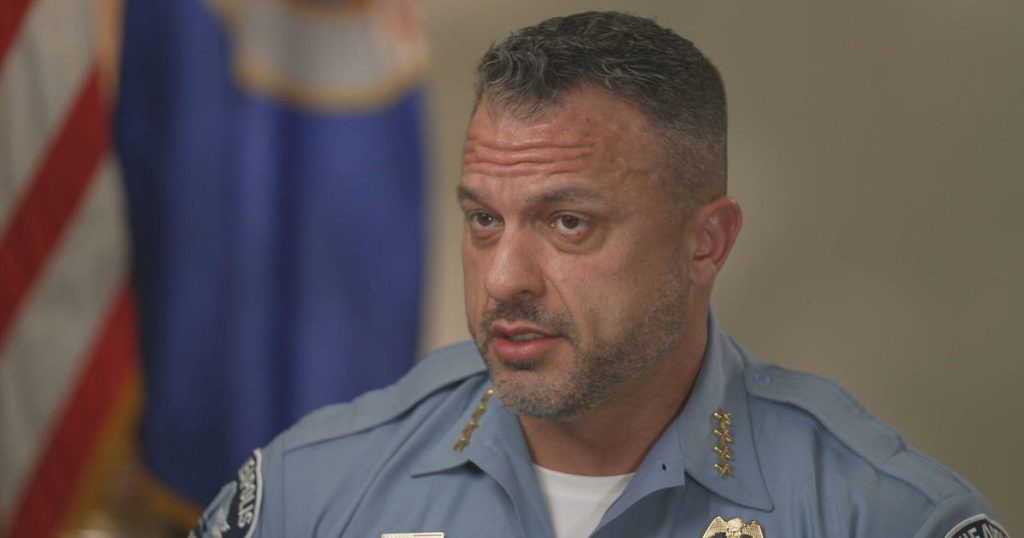Minneapolis Police Chief Brian O’Hara is dealing with a significant shortage of officers in his department, with over 200 vacancies and a 40% loss in the force in the last four years. The city is experiencing a surge in crime, including assaults and shooting incidents, leading to mandatory overtime for officers. This staffing shortage issue is not unique to Minneapolis, as other cities like Philadelphia, Chicago, and Los Angeles are also facing large deficits in their police departments. However, in Minneapolis, the problem goes beyond just a lack of manpower to an issue of trust as well, particularly in the aftermath of George Floyd’s murder.
Following Floyd’s murder, the Minneapolis Police Department has been making efforts to change its culture, including hiring Chief O’Hara from Newark, New Jersey, where he served as deputy mayor. Community activist Nekima Levy Armstrong believes that the changes in the department have been more out of necessity than choice, indicating that more work needs to be done to rid the force of problematic officers. While the department offers signing bonuses to recruit new officers, Chief O’Hara recognizes that the issue runs deeper than just monetary incentives. He questions whether society expects too much perfection from police officers and emphasizes the challenges of rebuilding the force, especially with the upcoming summer season.
As Chief O’Hara faces the ongoing staffing concerns, he continues to support his officers and remind them of the potential increase in crime during the warmer months. The department is working to address the delicate balance between maintaining public safety and addressing community concerns regarding law enforcement. The vacancies in the force pose a significant challenge in responding to the rising crime levels, and O’Hara is focused on rebuilding trust and improving relationships with the community. The Minneapolis Police Department’s efforts to address the staffing shortage and rebuild its force reflect broader challenges facing law enforcement agencies across the country.


